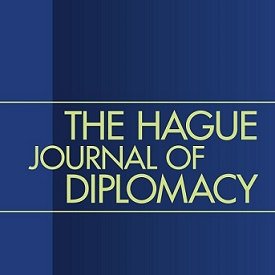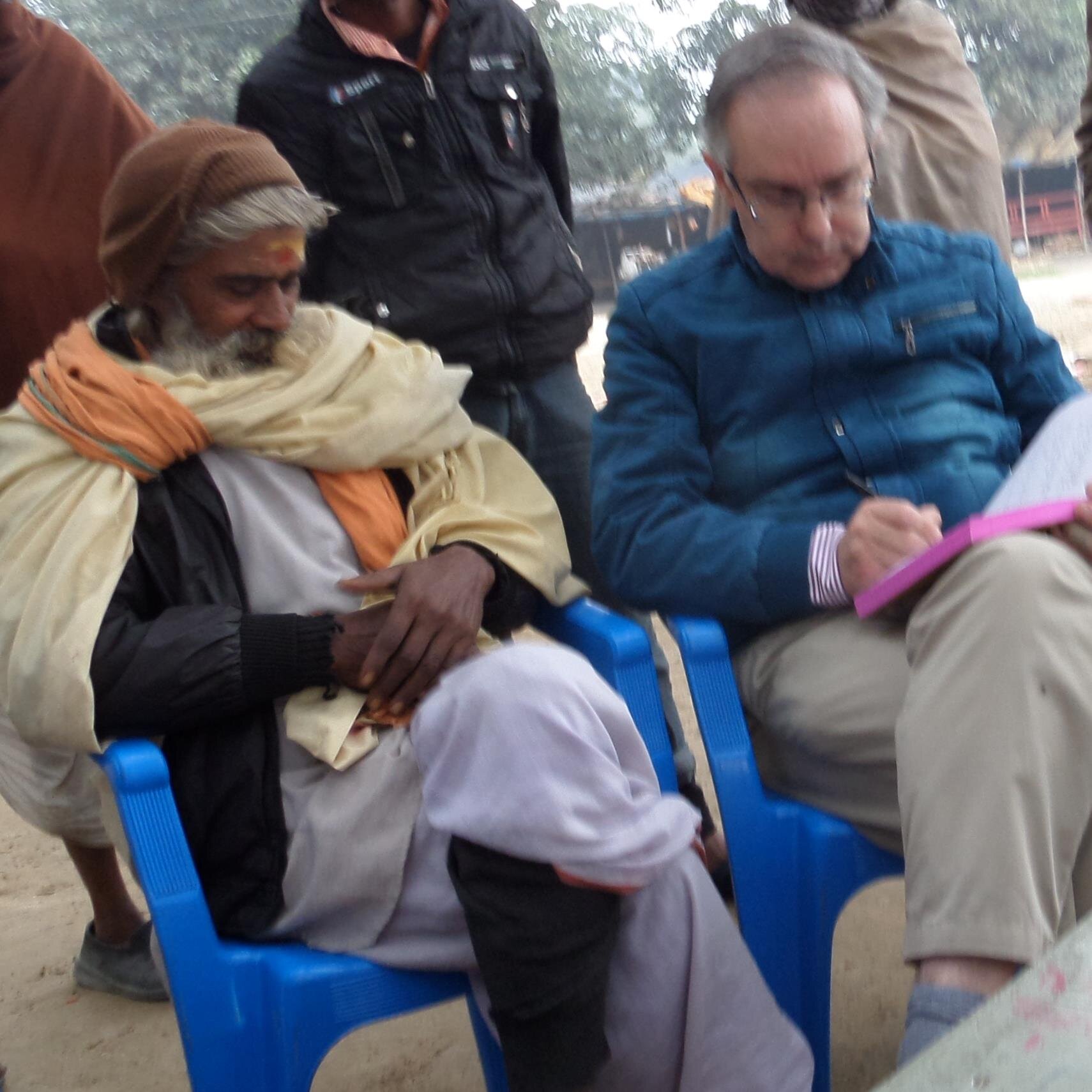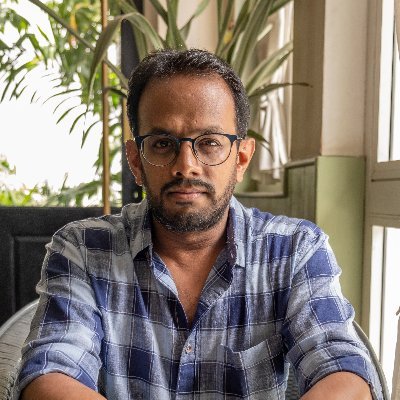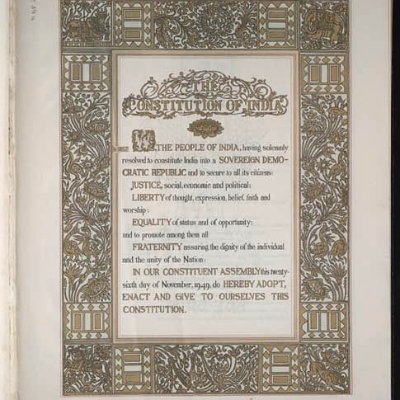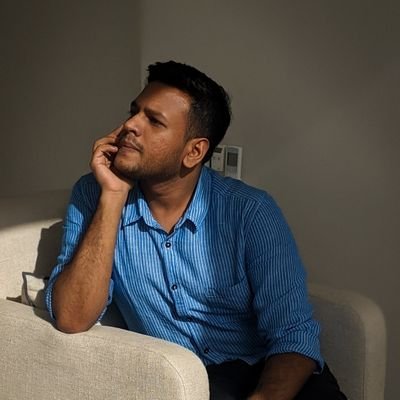
Nayanika Mathur
@NayanikaM
Followers
8K
Following
11K
Media
277
Statuses
4K
Professor of Anthropology & South Asian Studies @UniofOxford | Author 'Paper Tiger' & 'Crooked Cats' | Currently writing on anthro, the state & climate crisis
Oxford, UK
Joined January 2013
I wrote this essay in the current Sudan issue of Transition Magazine titled "The Politics of Hunger" which argues that the current hunger crisis has been decades in the making. It begins with Nimeiri and looks at US engagement over the decades. https://t.co/WJqVU0pznc
24
317
560
Looking forward to discussing Making India Work in Oxford tomorrow afternoon! @CSASPOxford
Starting on Tuesday (14 Oct) the new term of South Asian Studies Seminars with @CSASPOxford @StAntsCollege
@louisetillin
0
7
42
Surreal as it feels, my book Coolie Migrants, Indian Diplomacy is out with @HurstPublishers. It has been shaped by the support of an incredible community of scholars. Grateful for the generous endorsements from @vineet1232 @thariel @Kate_SdE Order now! https://t.co/heOqHTGlwX
13
55
248
The visceral hostility of the NDA government to scholars and scholarship is something to behold. A government ideologically committed to Hindi has banned Francesca Orsini. You can't make this up.
Francesca Orsini's scholarship has greatly enriched Hindi literary studies and history of the book in India. She is a renowned scholar published worldwide in English and in Hindi. She has just been denied entry into India, with no reason given.
166
329
905
my book (!) ‘A Volatile Picture: War and the Political Work of Photography in Sri Lanka’ encompassing a decade of research on Tamil photographic practices set against a backdrop of ethno/nationalist conflict & the island’s turbulent post/war out Spring 26 https://t.co/lEhCVqDvGm
7
47
150
🌍 How does caste shape diplomacy? Check out our new Special Issue — Caste in Indian Diplomacy and International Relations. Edited by @vineet1232, @pavanjnu & @KalathmikaN Read the full issue here 👉 https://t.co/vRdhBKRZFF
#Diplomacy #India #InternationalRelations
brill.com
"Volume 20 (2025): Issue 3 (Sep 2025): Special Issue: Caste in Indian Diplomacy and International Relations, edited by Vineet Thakur, Pavan Kumar and Kalathmika Natarajan" published on 17 Sep 2025 by...
0
6
14
Our new magazine @Equatormag is officially out in the world. Sign up for preview emails, donate, and get tickets to our launch event: https://t.co/dFPvJizKPq.
12
28
144
I can't stop thinking about 1 sentence in today's UN report regarding Israel's genocide in Gaza. "Israeli security forces shot at & killed civilians, including children who were holding makeshift white flags. Some children, including toddlers, were shot in the head by snipers.”
987
21K
56K
It’s official: the United Nations Commission of Inquiry concludes Israel is committing genocide. The UN body calls on nations to stop sending weapons to Israel, ensure people within their jurisdiction aren’t aiding or inciting the genocide, and hold those who are accountable.
81
2K
7K
So grateful for a terrific artwork that captures @OrnitShani and my argument. Out this month @penguinrandom.
Illustrated by Siddhesh Gautam (@siddheshgautam) & designed by me (Shadab Khan), the jacket of “Assembling India’s Constitution” (@itihaasnaama and @OrnitShani) layers history with design. Pantone blue grounds it with calm authority; bold serif type adds permanence.
15
66
409
🚨 We're hiring! 2 PDRA positions available for the Wellcome-funded project I am leading on Covid-driven digital health work at King's College London. 📅 Deadline: Sept 29 - apply soon! Details in the thread below
1
13
21
After anti-corruption #GenZprotests and a deadly uprising forced the prime minister and government to resign, #Nepal searches for a new politics that can jettison its failed establishment. Himal editor @romangautam writes from #Kathmandu
https://t.co/UtRD9Jsjlw
himalmag.com
Nepalis don’t often pay attention to the politics of their Southasian neighbours beyond India. But when Sri Lankans rose up in 2022 to boot out the Rajapaksa re
9
42
73
New, open access article in Development and Change, interrogating the convergence of renewables capital and pol authoritarianism in large Asian coal economies attempting green transition. 'Authority as a Spatial Hook for Renewables Capital' https://t.co/lCsqoudeKM
2
3
13
.@NayanikaM and I present rare historical narratives to argue against the SIR: We dig into 1940s/50s archives on election process, letters around the original NRC, but also recent radical EC proposals including remote migrant voting!
theindiaforum.in
Exercises like the Special Intensive Revision of electoral rolls presage a state of affairs where documents and IDs can never prove sound identification and where citizenship of the ordinary resident...
0
5
16
Finally, a word of caution to all those who consider themselves secure "extraordinary citizens" of New India and cannot imagine these punishing bureaucratic demands ever touching them. The historical and ethnographic record would argue otherwise.
0
0
0
A new paradox is emerging at the heart of the state relating to who can belong and who cannot in India; who is a 'true' Indian and who isn't. Even as more and more proof is demanded of one, it still doesn't appear to ever be quite enough. It is an impossible identification.
1
0
0
Extraordinary citizens stand apart from those who become suspect not because they don't hold the correct documents - they may in fact hold them - but due to embodied socio-economic markers that inhibit them from ticking politically expedient boxes of suitability & respectability.
1
0
0
*But* an exclusive focus on "document-scarcity" can come to function as a red herring. It takes attention away from a never-before-seen bureaucratic narrowing which is in line with the majoritarian politics of 'New India' and is creating a new category of "extraordinary citizens"
1
0
0








